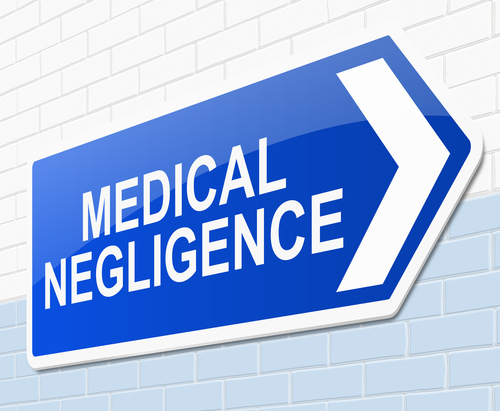When determining medical negligence or a poor medical outcome it is important to note that not all failed medical procedures are as a result of medical negligence. Sometimes a bad medical outcome can occur without a patient being provided care that is below a reasonable standard.
Before we look at an example of a poor outcome it is prudent to discuss what negligence is, and how it is applied to the medical negligence cases.
Medical Negligence
Negligence is defined as a failure to exercise reasonable care and skill.
A failure to exercise reasonable care and skill can be in the form of an act (placing someone in a position of harm), or an omission (not completing an act which would have avoided the harm).
When considering if a person is negligent, or not the Court considers three criteria:-
- Was the risk of harm foreseeable;
- Was the risk of harm not insignificant; and
- In the circumstance, would a reasonable person take steps to avoid the risk of harm manifesting;
If the answer to these three questions is yes then the Court will find that a person is negligent.
Medical negligence is more complicated then most other negligence cases as the test is defined as “a departure from an acceptable standard of care”. Unlike most areas in the tort of negligence this standard is not set by the legal industry, but the medical profession themselves and is changing all the time.
Poor Outcome
A poor medical outcome does not automatically result in a medical negligence case being able to be commenced. As the following two examples example will show:
The patient hits their head during a fall and suffers a bleed on the brain that is diagnosed with a CT scan at a rural hospital. The patient is immediately taken by ambulance to the closest hospital that is able to perform brain surgery. During the journey the patient has a seizure and suffers further brain damage before they are able to receive the necessary surgery.
In this example the medical professionals have acted in a timely fashion. The risk of harm was both foreseeable, and not insignificant, however in the circumstances they have acted reasonably as they immediately transferred the patent to a hospital better able to treat the injuries.
A CT brain scan is performed on the patient’s, and incorrectly reports that there is “no bleed on the brain”. The patient has a seizure, and as a result a second CT scan is performed. Upon review of the results of the first scan it is noted that they failed to identify that there was in fact bleeding on the brain.
In this example the risk of harm was both foreseeable, and not insignificant. The difference in this example is that the medical provider has not acted in a reasonable way, as by incorrectly reporting the results of the scan they have allowed the patient injuries to worsen.
Conclusion
Medical negligence cases require a more specialised and forensic approach then most other general negligence cases, due to the complex nature of medicine and the ever-changing health industry.
Stacks Goudkamp has a specialised medical negligence team who are experience in preparing medical negligence cases, to ensure that you obtain the best outcome for your claim.
If you or someone you know has been involved in a case of medical negligence you may be entitled to compensation. For more information and to arrange a free consultation please contact Stacks Goudkamp on (02) 4058 2715 or alternatively make an online enquiry.



